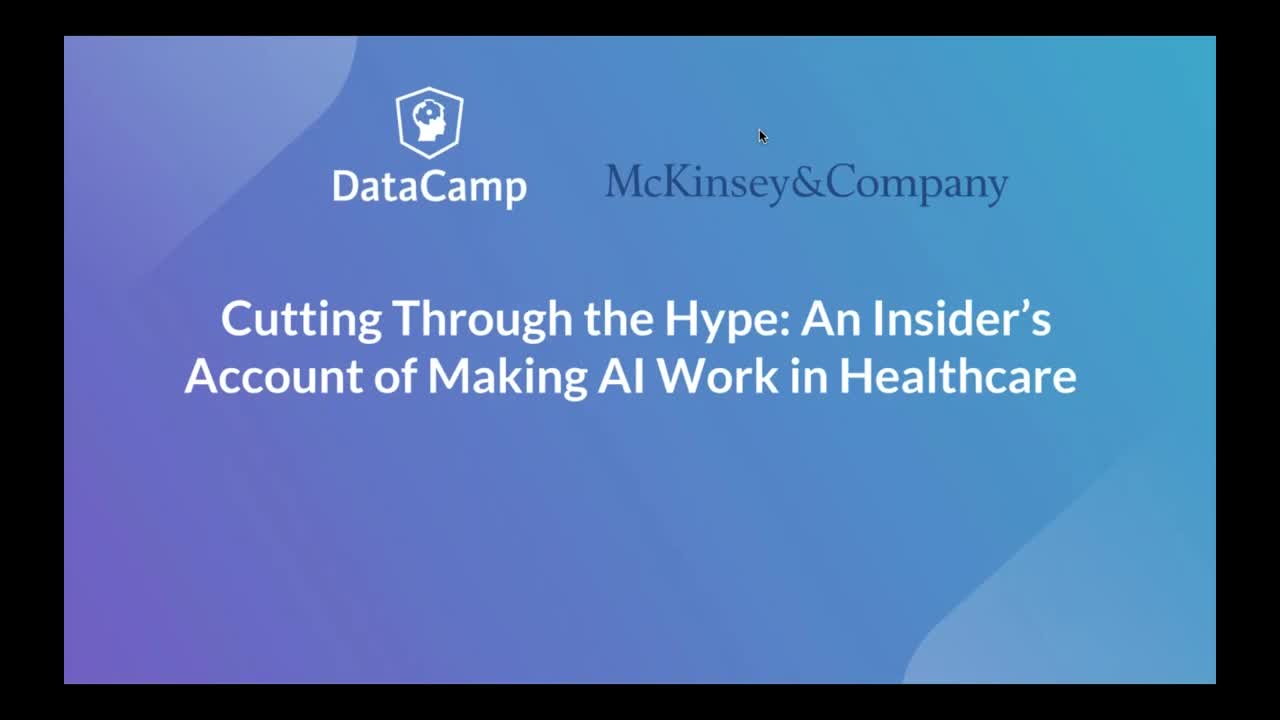Saltar al contenido principalMás información





Altavoces

Arnaub Chatterjee
¿Entrenar a 2 o más personas?
Obtenga acceso de su equipo a la biblioteca completa de DataCamp, con informes centralizados, tareas, proyectos y másRelacionado
white paper
The Difference Between AI and Machine Learning
Find out where AI, ML, and data science intersect and where they diverge.webinar
AI in Healthcare: What the Slope of Enlightenment Will Look Like
Move beyond the hype and see how AI has really impacted the healthcare space.webinar
How Data Science is Transforming Healthcare
Learn how data science is transforming healthcare across verticalswebinar
Artificial Intelligence for Business Leaders
We'll answer the questions about AI that you've been too afraid to ask.webinar
The High Cost of AI Hype
With new breathtaking capabilities from generative AI released every several months—and AI hype escalating at an even higher rate—it’s high time we differentiate most of today’s practical ML projects from those research advances.webinar
Deep Learning in Finance
Get an insider’s account of deep learning in finance.Join 5000+ companies and 80% of the Fortune 1000 who use DataCamp to upskill their teams.
Loved by thousands of companies
